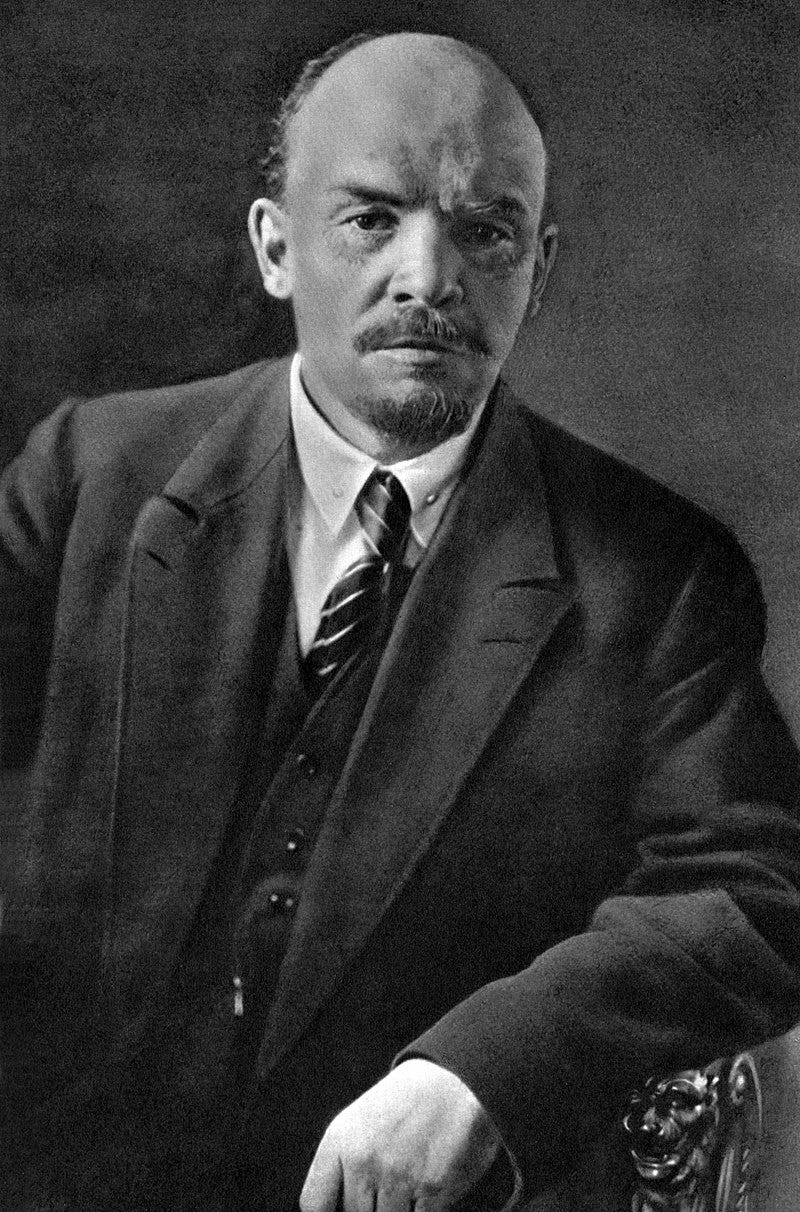Make Them Look Ridiculous
Mocking, shaming, and conforming to the collective
The Russian Revolution in 1917 led to years of Civil War in Russia. The Bolshevik Party, headed up by Vladimir Lenin, seized power in the imperial capital of Petrograd in October 1917, but millions of people resisted. Three years and 10 million lives later, the Bolshevik Party was in charge.
The war to restore order in Russia was brutal. One of its consequences was widespread famine in parts of Ukraine and the Urals. The head of the Russian Orthodox Church at the time, Patriarch Tikhon, reported to authorities that, “People’s minds turn even to thoughts of cannibalism.” (Curtois, 122). More than a few acted on those thoughts. The famine ended in 1922, but not before 5 million people died of hunger.
“Undermining Collectivity”
During the famine, dozens of intelligentsia members sought to organize relief. They used their connections and influence, such as they were, to pressure the Bolshevik regime to create a committee to organize famine relief. Some Party leaders were willing to meet with them, though Lenin refused. He thought his comrades were being overly emotional.
Despite Lenin’s opposition, conditions were so dire that a committee was created to render aid. It was called the All-Russian Committee for Aid to the Starving. The committee managed to arrange for the help from the Red Cross, the Quakers, Herbert Hoover’s American Relief Association, and other international relief agencies.
After just five weeks—once Americans were helping to feeding millions of Russian peasants—Lenin dissolved the committee and ordered its leaders be arrested for sedition, thrown into prison, and accused of refusing to work.
Some in the country complained to the Cheka—the state police and precursor to the KGB—about the outrageously unjust punishment of these people trying to bring some relief to the hungry. The Cheka responded:
You say the Committee has done nothing wrong. It’s possible. But it has become a rallying point in society, and that we cannot allow. When you put a seed in water, it soon starts to sprout roots, and the Committee was beginning to spread its roots throughout society, undermining collectivity…we had no choice but to pull it up by the roots and to crush it (Curtois, 123).
The response is revealing. When “collectivity” is a supreme end in itself, then crushing opposition is a supreme moral good.
Collectivity isn’t one of our most common buzzwords these days, but we have several others that function in a similar way, namely, to justify coerced unanimity. “Inclusion” is one. “Community” is another. “Democracy” is the main one, though. Joe Biden’s speech from the gates of hell was a good illustration of how it works: “democracy” is under threat. Time to crack down. The coordinated effort between the Federal Government and Silicon Valley to suppress Hunter Biden’s laptop, among other things, was another. “You say that the New York Post exposé on Hunter’s laptop is accurate,” we might imagine a Department of Homeland Security agent saying. “It’s possible. But it has become a rallying point in society, and that we cannot allow.” Threat to democracy, and all that.
The most impressive crushing of threats to collectivity in our own time, however, the one we’ll tell our grandkids about, has to be the mono-narrative around Covid vaccines. It’s unbelievable how overwhelming that one was, which the jaw-dropping Matt Orfalea montage of fear-mongering, loathing, and mockery makes plain.
Mock Them at Least Once a Week
You might be wondering how the young Bolshevik regime crushed the threat to collectivity that it identified in famine-relief workers. The answer was a media smear campaign.
After ordering arrests, Lenin gave instructions for how to finish the job.
Instruct all newspapers to begin insulting these people, and heap opprobrium upon them, accusing them of being closet White Guard supporters and bourgeois do-gooders who are much keener to travel abroad than to help at home. In general, make them look ridiculous and mock them at least once a week for the next two months (Curtois, 123).
The cruelty of this was characteristic for Lenin, but so was its strategic effectiveness. Leninism won the Russian Civil War and founded a socialist state against long odds in part because regime-level considerations were always in focus. Even in the midst of catastrophic suffering and upheaval—some parents were eating their children—Lenin kept his regime-building wits about him. The benefit of all the upheaval was to “smash the state,” as he had written in 1917, and to build something brand new. Lenin was a revolutionary, after all. In 1921, especially, but also throughout the Soviet period, politics were for the purpose of building a social collectivity. High level decisions were made with this end in mind.
The media followed Lenin’s directives. Headlines in the newspaper mocked and shamed the dozens of famous people who had helped the committee. But one insult per week for two months? Image what Lenin could have done with a Twitter mob. American elite’s distain for people who refuse to comply with the state-approved policies, values, and behavior would make Lenin proud.
All this might serve as a reminder to be anti-fragile when it comes to the mockery from the left, especially in times of political and cultural upheaval. Being mocked can strengthen not weaken your resolve to seek and speak truth.
As for mocking the left? That is useful, too. Though they do a lot of the work themselves.
https://x.com/AuronMacintyre/status/1747983832475738379?s=20
*Citations taken from: Stéphane Curtois et al., The Black Book of Communism: Crimes, Terror, Repression (Cambridge: Harvard University Press, 1999).





